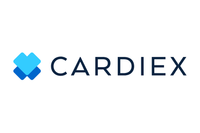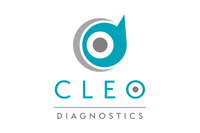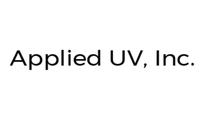Medtronic Subsidiary Wins Health Canada License for HVAD System
This is the first heart pump that has received a license from Health Canada for less-invasive implant procedures.
Medtronic of Canada, a Medtronic (NYSE:MDT) subsidiary, has officially received approval from Health Canada for its HeartWare Ventricular Assist Device (HVAD) system, the company revealed on Wednesday (February 13).
This is a big win — not only for the company but for Canadian patients with advanced heart failure — as it is the first heart pump that has received a license from Health Canada for less-invasive implant procedures.
The HVAD, which is a left ventricular assist device (LVAD), is currently the smallest commercially available LVAD system in Canada for thoracotomy surgeries, which is a procedure that opens the chest. LVADs are instrumental in assisting the heart to pump and increase the amount of blood flow going through the body.
According to the press release, thoracotomy procedures can help protect the heart for future procedures, including a heart transplant, and reduces the amount of recovery time in the hospital. LVAD systems are medical devices that assist cardiac circulation and either partially or fully replace functions of a failing heart.
“If you think about the stage of heart failure these patients are in, which is fairly end stage, [the HVAD device] is a massive opportunity — if there are no real hearts available to them — to really continue to live a productive life,” Trevor Cook, senior director of the cardiovascular group at Medtronic Canada, told the Investing News Network (INN).
Health Canada’s approval of the HVAD device was based on results of the company’s LATERAL prospective clinical trial, which began enrolment in 2015. Results of this trial were presented last year at the International Society for Heart and Lung Transplantation. Approximately 144 patients with end-stage heart failure, and who were eligible for a heart transplant, were enrolled across the US and Canada in 26 centers.
Pre-specified endpoints of the LATERAL trial also showed that time spent in the hospital was reduced by 30 percent when compared to sternotomy procedures. A sternotomy surgery is a more invasive procedure than a thoracotomy as the sternum itself is essentially divided or cracked. Subjects of the trial spent between 12 and 18 days in the hospital for the thoracotomy procedure when compared to the 26 day average of a median sternotomy.
The trial showed that the HVAD system is safe and effective at the one-year follow-up from being implanted with the device. Primary endpoints including a six-month survival free of disabling stroke when on the implanted device in addition to free free from disabling stroke, transplanted by month six or explanted as a result of ventricular recovery by month six.
LATERAL had an 87 percent “event-free” survival rate of two years thanks to the support of the device and an 89 percent survival rate in one year with the thoracotomy approach, Taresh Mistry, marketing manager for the MCS division at Medtronic Canada, told INN.
In addition to the device’s approval for implant through thoracotomy, Health Canada awarded the HVAD System authorization to modify the indications to include destination therapy for patients with advanced heart failure that may not be eligible for heart transplants.
The company’s press release says the device received authorization for destination therapy in part from results form the ENDURANCE and ENDURANCE Supplement trials which enrolled roughly 1,000 patients.
“Think about the availability of hearts and then the potential to not have an available donor. Destination therapy in this indication, particularly with our device, really provides patients an opportunity to be on the device longer,” Cook told INN.
Cook explained that the median survival rate for heart failure in Canada is just over two years and affects roughly one million people.
“Having medical device technology such as the HVAD with destination therapy can offer a new option for [patients],” he added.
More than 17,000 patients have been implanted with device since first being approved in Europe back in 2009. Mistry told INN that in addition to its approval in Canada, the device has been approved in the US, Australia and potentially Japan.
“Globally, we’re trying to expand [the device],” Mistry said, adding that the majority of the implants have been done in Europe and the US because those are the “major geographies” the company’s focus is in.
Medtronic of Canada is a subsidiary of Medtronic, which is one of the largest medical device technology companies in the world.
Shares of Medtronic itself were up 0.48 percent from US$90.79 on Wednesday to US$91.23 on Thursday (February 14). After hours trading on Thursday bumped the stock up to US$91.25.
Don’t forget to follow @INN_LifeScience for real-time updates!
Securities Disclosure: I, Jocelyn Aspa, hold no direct investment interest in any company mentioned in this article.
Editorial Disclosure: The Investing News Network does not guarantee the accuracy or thoroughness of the information reported in contributed article. The opinions expressed in these interviews do not reflect the opinions of the Investing News Network and do not constitute investment advice. All readers are encouraged to perform their own due diligence.



